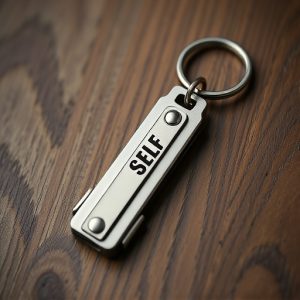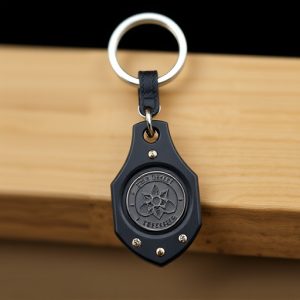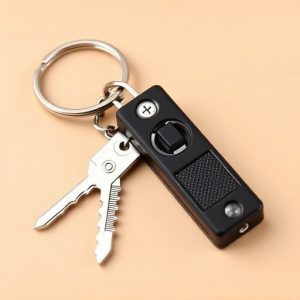Self-Defense Keychains: Legalities, Benefits, and Emergence Across States
Self-defense keychain laws in the US vary significantly from state to state, with regulations coveri…….
Self-defense keychain laws in the US vary significantly from state to state, with regulations covering carry locations, age restrictions, and use conditions. While some states like New York and California have strict rules, Texas and Florida are more permissive. These laws are crucial for ensuring compliance and personal safety, as emergency alarm keychains gain popularity. Before purchasing a self-defense keychain with an alarm, thoroughly research Self Defense Keychain Laws by State to avoid legal issues, especially regarding open carry, permits, and usage restrictions.
In today’s world, personal safety is paramount. One innovative solution gaining traction is the self-defense keychain with an emergency alarm feature. This compact device offers peace of mind, enabling users to quickly alert others in case of distress. This article explores the legal landscape surrounding these keychains, their emerging popularity, and why they’re a smart investment. We’ll delve into the features, benefits, and what you need to know before purchasing, with a special focus on understanding self-defense keychain laws by state.
- Understanding Self-Defense Keychain Laws: A Comprehensive Overview
- The Emergence of Emergency Alarm Keychains for Personal Safety
- Features and Benefits: Why an Alarm Keychain is a Smart Investment
- Navigating Legalities: What You Need to Know Before Purchasing
Understanding Self-Defense Keychain Laws: A Comprehensive Overview
In the United States, self-defense keychain laws vary significantly from state to state, reflecting diverse legal interpretations and societal perspectives on personal safety. Understanding these laws is crucial for anyone considering carrying a self-defense keychain with an emergency alarm feature. Each state has its own set of regulations governing the use and possession of personal defense devices, including keychains equipped with alarms or other deterrents. These laws cover aspects such as permissible places of carry, age restrictions, and conditions under which these devices can be used legally.
For instance, some states like New York and California have strict regulations on all self-defense weapons, including keychains, while others like Texas and Florida have more lenient laws. It’s essential to research the Self Defense Keychain Laws by State to ensure compliance with local legislation. Knowing your rights and responsibilities under these laws not only helps you stay within legal boundaries but also empowers you to take proactive measures for personal safety in public spaces.
The Emergence of Emergency Alarm Keychains for Personal Safety
In recent years, personal safety has become a growing concern, leading to innovative solutions like the emergence of emergency alarm keychains. These compact devices are designed to provide individuals with an extra layer of protection in unexpected situations. The concept is simple yet powerful: a small keychain-sized alarm that can be easily activated to draw attention and deter potential threats. With just a quick press of a button, a loud siren sounds, alerting nearby people and authorities of distress.
The popularity of self-defense keychains has prompted various states to implement Self Defense Keychain Laws, regulating their use and ensuring public safety. These laws vary by state, addressing concerns related to false alarms and potential misuse. However, the overall trend suggests a growing acceptance of personal safety devices as valuable tools for individuals to protect themselves in an ever-changing world.
Features and Benefits: Why an Alarm Keychain is a Smart Investment
An alarm keychain isn’t just a trendy accessory—it’s a smart investment in personal safety, especially when considering self-defense keychain laws by state. These compact devices pack a powerful punch, offering multiple features designed to keep you secure. Beyond its charming design, an alarm keychain can emit loud, attention-grabbing sounds that deter potential threats, ensuring your peace of mind.
The emergency alarm function serves as a personal safety net, providing an extra layer of protection during unexpected situations. With just a quick press, the alarm can be activated, alerting nearby individuals or scaring off would-be assailants. Moreover, some advanced models include GPS tracking capabilities, allowing you to stay connected and potentially aid in rescue efforts if ever needed. By integrating this small yet mighty tool into your daily routine, you’re taking proactive steps to safeguard yourself—a valuable asset in today’s world.
Navigating Legalities: What You Need to Know Before Purchasing
Before purchasing a self-defense keychain with an emergency alarm function, it’s crucial to understand the legal implications in your state. The laws surrounding self-defense keychains vary significantly across the US, so what is permitted in one state might be prohibited in another. For instance, some states allow for the open carry of self-defense devices like keychains, while others require permits or restrict their use to specific locations.
Navigating these Self Defense Keychain Laws by State can be a complex task. It’s essential to research and understand the regulations in your area to ensure compliance and avoid any legal repercussions. Always check with local law enforcement agencies or consult legal professionals for up-to-date information. This step is vital to protect yourself and make sure your purchase aligns with the legal framework surrounding self-defense tools in your region.
In conclusion, self-defense keychains equipped with emergency alarm functions offer a smart and proactive approach to personal safety. Understanding the varying Self-Defense Keychain Laws by state is essential for responsible ownership. With features like high-decibel alarms, easy activation, and compact designs, these keychains provide peace of mind while navigating legalities. Before purchasing, familiarize yourself with local regulations to ensure compliance and maximize the benefits of this innovative personal safety tool.


